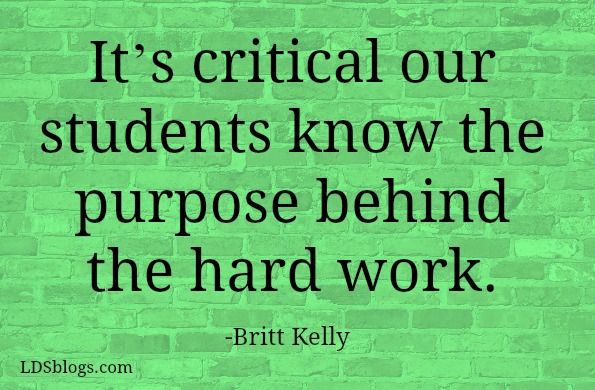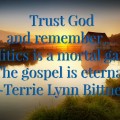Long, long ago when I was in high school Calculus I asked my teacher why I would ever need to know how to calculate the area of something he couldn’t even draw. I asked him what calculus is used for in real life. He didn’t have an answer for me. I dropped the class at the semester. I was immature. Had he been able to tell me calculus is used with anything that involves a rate of change I might have stayed. Even teenage me could be impressed by knowing I could use calculus in statistical analysis of populations or perform computer science run time analysis. And if I wasn’t impressed, at least I would have a concept that, this is a useful thing I’m learning.
 Now I have a daughter in college calling me with math troubles. Polynomial long division. As she was talking about her math teacher, she made a comment that he didn’t know how you would ever use polynomial division other than…an exercise of logic. Most logical college students would then determine, that’s not worth it. What if they knew polynomials are used to determine how much of a chemical compound should be in any given prescription to determine the life of the drug in the body? Polynomials are used to navigate rockets and determine the path of stars through space.
Now I have a daughter in college calling me with math troubles. Polynomial long division. As she was talking about her math teacher, she made a comment that he didn’t know how you would ever use polynomial division other than…an exercise of logic. Most logical college students would then determine, that’s not worth it. What if they knew polynomials are used to determine how much of a chemical compound should be in any given prescription to determine the life of the drug in the body? Polynomials are used to navigate rockets and determine the path of stars through space.
A graphed polynomial is parabola-useful for shooting a basketball, determining where a firework will land so you don’t start a fire, the path of a roller coaster, the energy produced by waves…polynomials are the way of mathematically dealing with these realities. It’s unlikely that the average student will be planning firework shows, or need to do the calculating to plan the show. Most students will appreciate knowing there is an application. This is not just an exercise in logic.
 Imagine introducing a class with visuals of waves and fireworks and roller-coasters and navigating rockets. Is your interest peaked more than if you were told to listen to a lesson about long division of polynomials? I’m not saying teachers have to be entertainers. I would love to have people who have USED polynomials to teach polynomials. At least I’d like people who LIKE polynomials to teach them. Some math teachers teach because they are GOOD at it, not because they like it. There is a difference. Some teachers are good at math, but not good at explaining it in a variety of ways.
Imagine introducing a class with visuals of waves and fireworks and roller-coasters and navigating rockets. Is your interest peaked more than if you were told to listen to a lesson about long division of polynomials? I’m not saying teachers have to be entertainers. I would love to have people who have USED polynomials to teach polynomials. At least I’d like people who LIKE polynomials to teach them. Some math teachers teach because they are GOOD at it, not because they like it. There is a difference. Some teachers are good at math, but not good at explaining it in a variety of ways.
In some cases we have teachers who started out liking their subject, but the ever growing mountain of red tape, endless grading, frustrations of teaching, the stress of finances and time pressure, have all combined together to dull what used to be an inspired teacher. It all leads to a tired teacher.
A tired teacher, and a student who doesn’t understand the purpose of what they’re doing or why: is this a good learning environment? I love math too much to watch this. So I sit on the side and text my daughter the uses for polynomials, I suggest my son read living math books, I play games with my kids and identify that as math. We learn logic and probability by playing Settlers of Catan. I call cooking math. Why associate math with a worksheet, when 20 sided dice are available? When we let younger children play and use math, they will connect math with reality and with fun.

To read all of Britt Kelly’s articles, please click here.
I get that math requires hard work. When it does, I think it’s critical our students know the purpose behind the hard work. It should require to figure out the math needed to navigate through space. But before you make that jump to light speed, you need to know you’re not going to fly through an asteroid belt. It’s worth the long division.
About Britt Kelly
Britt grew up in a family of six brothers and one sister and gained a bonus sister later. She camped in the High Sierras, canoed down the Colorado, and played volleyball at Brigham Young University. She then served a mission to South Africa.
With all of her time in the gym and the mountains and South Africa, she was totally prepared to become the mother of 2 sons and soon to be 9 daughters. By totally prepared she means willing to love them and muddle through everything else in a partially sleepless state. She is mostly successful at figuring out how to keep the baby clothed, or at least diapered, though her current toddler is challenging this skill.
She feels children naturally love to learn and didn’t want to disrupt childhood curiosity with worksheets and school bells. She loves to play in the dirt, read books, go on adventures, watch her children discover new things, and mentor her children. Her oldest child is currently at a community college and her oldest son is going to high school at a public school. She loves to follow her children in their unique paths and interests.
She loves to write because, unlike the laundry and the dishes, writing stays done. Whenever someone asks her how she does it all she wonders what in the world they think she’s doing.
Twitter •




